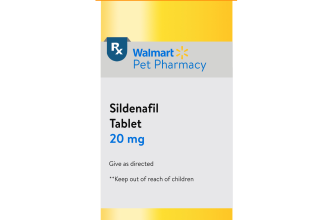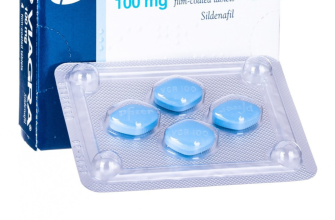Your doctor will determine the correct Singulair dosage based on your age, weight, and specific condition. For adults and adolescents 15 years and older, the usual starting dose is 10 mg once daily. Children aged 2-14 years receive a dosage based on their weight. Always follow your physician’s instructions precisely.
Never adjust your dosage without consulting your healthcare provider. Adjustments are made gradually if necessary, based on individual response and medical needs. For example, some individuals might require a higher dose, while others may find a lower dose sufficient. Your doctor carefully monitors your progress and makes modifications as needed.
Remember: This information is for guidance only and does not replace professional medical advice. Be sure to discuss any concerns or questions about your Singulair prescription directly with your doctor or pharmacist. They are best positioned to manage your treatment plan. Always read the medication leaflet included with your prescription for complete information on dosage, potential side effects, and drug interactions.
- Singulair Dosage: A Comprehensive Guide
- Dosage Adjustments
- Missed Dose
- Important Considerations
- Recommended Singulair Dosage for Adults
- Singulair Dosage for Children and Adolescents
- Adjusting Singulair Dosage: When and Why
- Common Singulair Dosage Errors and How to Avoid Them
- Important Considerations When Taking Singulair
Singulair Dosage: A Comprehensive Guide
Always follow your doctor’s instructions for Singulair dosage. The recommended dose varies depending on age and condition. For adults and children 6 years and older with asthma or allergies, the usual starting dose is 10 mg once daily, taken in the evening.
Dosage Adjustments
Your doctor may adjust your dosage based on your response to treatment. For example, children aged 2 to 5 years with asthma usually start with 4 mg once daily. For adults and adolescents with asthma, a higher dose of 20 mg once daily may be prescribed if needed. Never alter your dosage without consulting your physician.
Missed Dose
If you miss a dose, take it as soon as you remember unless it’s almost time for your next dose. Do not double the dose to make up for a missed one. Always refer to your doctor or pharmacist for guidance on managing missed doses.
Important Considerations
Singulair may interact with other medications. Inform your doctor about all medications, including over-the-counter drugs and supplements, you are currently taking. Report any side effects to your doctor immediately. Do not stop taking Singulair suddenly without consulting your doctor.
Recommended Singulair Dosage for Adults
The usual adult dosage for Singulair (montelukast) is one 10 mg tablet once daily, in the evening. This is generally recommended for the treatment of asthma and allergic rhinitis.
For adults with severe asthma, your doctor might prescribe a higher dose, potentially a 20 mg dose. However, always follow your doctor’s specific instructions, as individual needs vary. Never adjust your dosage without consulting your physician.
Remember, Singulair is most effective when taken consistently as prescribed. Taking it at the same time each day helps maintain consistent levels in your system.
This information is for guidance only and should not replace advice from a healthcare professional. Always discuss your medication with your doctor or pharmacist to determine the best dosage for your individual needs and health condition. They can consider your medical history and current health status to personalize your treatment.
Singulair Dosage for Children and Adolescents
Singulair (montelukast) dosage for children and adolescents depends on their age and weight. Always follow your doctor’s instructions, as individual needs vary.
For children aged 6 months to 5 years: The usual dose is 4mg once daily, typically taken in the evening. Parents should carefully administer the chewable tablets or granules.
For children aged 6 to 14 years: The typical dosage is 5mg once daily, taken in the evening. This can be administered as a chewable tablet.
For adolescents aged 15 years and older: The recommended dosage is generally 10mg once daily, taken in the evening. Adults often take the 10mg tablet.
Note: These are general guidelines. Your doctor will determine the most appropriate dosage based on your child’s specific condition and other factors. Always carefully read the medication information provided by your pharmacist and discuss any concerns with your doctor or pharmacist.
Missed Dose: If you miss a dose, administer it as soon as you remember, unless it’s almost time for the next dose. Never double the dose to make up for a missed one. Consult your doctor or pharmacist if you have questions about missed doses.
Side Effects: While generally well-tolerated, some children may experience side effects such as headache, abdominal pain, or diarrhea. Contact your doctor immediately if you observe any concerning side effects.
Adjusting Singulair Dosage: When and Why
Your doctor will determine the appropriate Singulair dosage based on your age and condition. For adults and adolescents (15 years and older), the usual starting dose is 10 mg once daily. Children aged 6-14 years typically start with 5 mg once daily. Always follow your doctor’s instructions.
Dosage adjustments are usually made based on response to treatment. If your asthma or allergies aren’t adequately controlled after a few weeks on the initial dose, your doctor might increase it. For adults and adolescents, this may mean increasing the dose to 10mg, if not already at that dose. For children, an increase might be considered, but only under a physician’s guidance.
Conversely, if you experience significant side effects at the prescribed dose, a lower dose might be prescribed. Side effects vary, but common ones include headache, abdominal pain, and diarrhea. Always report any concerning side effects to your healthcare provider immediately. They can assess the situation and determine whether a dose adjustment is warranted.
Factors influencing dosage adjustments beyond response and side effects include changes in your condition, such as a worsening or improvement in asthma symptoms or allergies. Concomitant medications also play a role. Your doctor should be informed of all medications you are taking, as interactions are possible. Regular check-ups are essential to monitor your condition and to discuss dosage requirements.
Never adjust your Singulair dosage yourself without consulting your doctor. Always follow their instructions precisely to ensure optimal treatment and minimize the risk of adverse events.
Common Singulair Dosage Errors and How to Avoid Them
Always follow your doctor’s prescribed dosage instructions precisely. This is the single most important step in avoiding errors.
Misunderstanding the dosage form: Singulair comes in chewable tablets and granules for younger children, and tablets for older children and adults. Ensure you administer the correct form for your child’s age and ability to swallow pills.
Incorrect timing: Administer Singulair once daily, usually at bedtime. Consistency is key. Setting a daily reminder can help.
Missed doses: If you miss a dose, take it as soon as you remember, unless it’s almost time for the next dose. Never double the dose to make up for a missed one.
Dosage adjustments: Your doctor may adjust your dosage based on your response to the medication and any side effects. Always discuss any changes with your physician before modifying the prescribed dosage.
Incorrect measurement: If using granules, use a measuring spoon or device provided with the medication, or follow the pharmacist’s instructions carefully. Avoid using household spoons for accurate measurement.
Ignoring warnings/side effects: If you experience significant side effects, contact your physician immediately. Don’t self-adjust your dose based on side effects.
Storing Singulair improperly: Store Singulair in a cool, dry place, away from moisture and direct sunlight. Expired medication should be discarded properly.
Seeking clarification: If you have any questions or uncertainties regarding your Singulair dosage, contact your doctor or pharmacist promptly. Clear communication prevents potential mistakes.
Important Considerations When Taking Singulair
Always follow your doctor’s prescribed dosage and instructions precisely. Never adjust your dose without consulting them.
Take Singulair at the same time each day, preferably in the evening, to maintain consistent blood levels of the medication. This helps optimize its effectiveness.
- If you miss a dose, take it as soon as you remember, unless it’s almost time for your next dose. Then, skip the missed dose and resume your regular schedule.
- Do not take a double dose to make up for a missed one.
Inform your doctor about all other medications you are taking, including over-the-counter drugs, herbal supplements, and vitamins. Some interactions may affect Singulair’s efficacy or cause side effects.
- Specifically mention any aspirin, blood thinners, or medications for liver or kidney conditions.
Report any unusual symptoms, such as mood changes, suicidal thoughts, or changes in behavior, to your doctor immediately. These are rare but serious potential side effects.
Understand that Singulair may not provide immediate relief. It typically takes several days or weeks to notice symptom improvement. Be patient and consistent with your treatment.
- Monitor your symptoms carefully and report any lack of improvement to your physician.
- Continue taking Singulair as prescribed, even if you feel better, unless your doctor advises otherwise.
Discuss potential side effects with your doctor before starting treatment. They can explain the risks and benefits to help you make an informed decision.
Store Singulair at room temperature, away from moisture and direct sunlight. Keep it out of reach of children.
Regularly check with your doctor to ensure the medication is still working effectively for you. They might need to adjust your treatment plan based on your progress.






